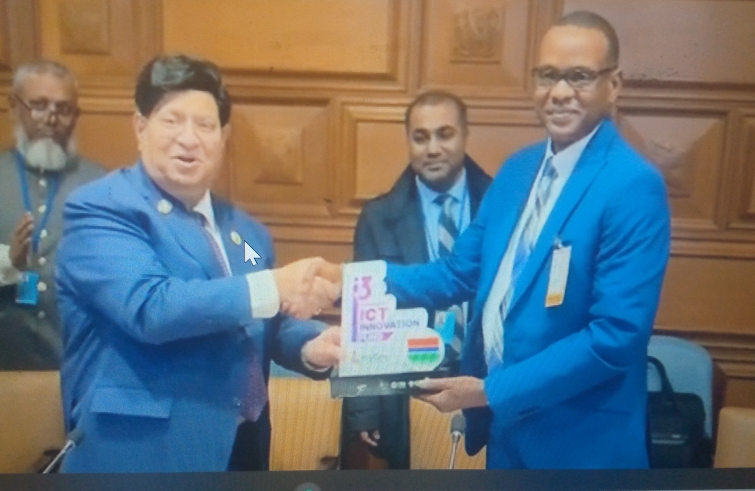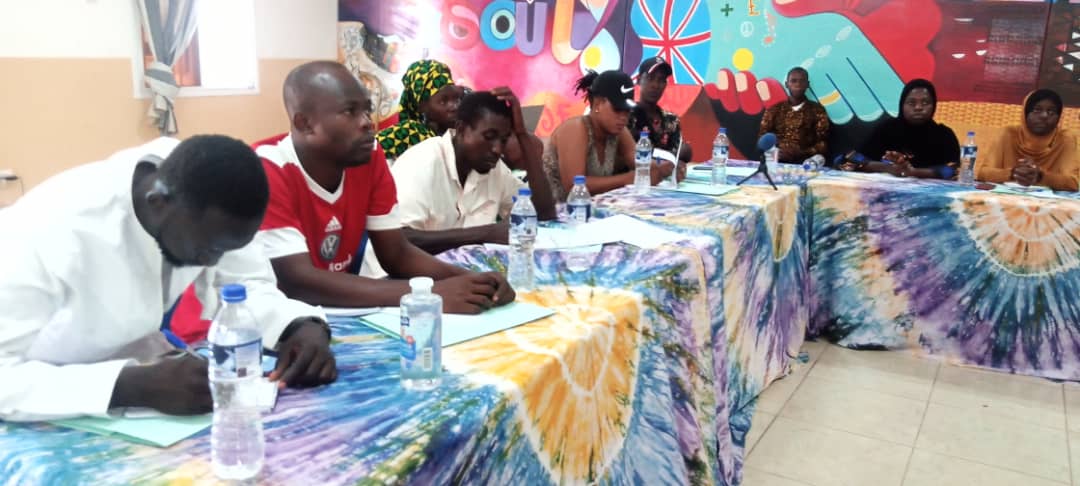By: Lamin B. Darboe
Information Officer, MoPS
The Ministry of Public Service, Administrative Reforms, Policy Coordination and Delivery, and the Ministry of Communication and Digital Economy in collaboration with the Government of the People’s Republic of Bangladesh are working on Public Service transformation through ICT.
In this regard, The Gambia has been successfully awarded along with 4 other countries “International ICT Innovation (i3) facility”. The facility will allow the Gambia to have a platform where citizens can access government services online.
The Bangladesh government will assist The Gambia to build and sustain the platform to facilitate future onboarding of more government services.
H.E Muhammad Abdul Muhith, Ambassador and Permanent Representative of Bangladesh to the United Nations in New York made the announcement on Monday, 25th September during the launching of the e-Quality Center for Inclusive Innovation at the 78th UN General Assembly (UNGA) side event in New York.
The event was organized by the Government of the People’s Republic of Bangladesh and supported by UNDP, with the theme: “Envisioning a World with Zero Digital Divide. The countries awarded the (i3) facility are: The Gambia, Ghana, Sao Tome’ and Principe, Somalia, and Uganda.
The i3 facility is a tool introduced by the Bangladesh Government to help Least Developed Countries to take the first step towards public service transformation through ICT.
In accepting the award, the Minister of Communication and Digital Economy, Hon. Ousman A. Bah explained that Digital divide in our countries is a reality as there is an unequal access to technology, such as smartphones, tablets, laptops, and internet but also lack of access to digital services.
This he said, has created division and inequality around not only access to resources but information. He further emphasized that in this 4th Industrial Revolution ICT out-run manufacturing as the basis for world economies and social connectivity. Therefore, people without access to information and resources are socially and economically disadvantaged, because they are unable to access basic things such as applying for jobs, shop and sell online, participate democratically in the governance process.
Minister Bah highlighted that the use of ICTs to enhance efficiency, effectiveness, and accountability of public institutions is a must for all governments in this present day generation. He further recognized thatdigital governance emerges as a key element to promote digital inclusion, transparency, accountability, and public participation while helping to build more resilient and inclusive socio-economic society.
Hon. Bah acknowledged that currently most public service institutions in The Gambia are using manual approach in delivering public services which involves citizens physically visiting government offices, carrying various documents, submitting applications, making payments to cashiers or banks, and repeatedly checking progress which he said is inefficient and costly.
Therefore, he noted that if the Bangladesh MyGovplatform is replicated in The Gambia, it will have a huge impact in the country’s drive to digitalize and improve public service delivery.
In his concluding remarks, he expressed on behalf of The Gambia Government his profound gratitude to the Information and Communication Technology (ICT) Division, Government of the People’s Republic of Bangladesh and the a2i Program under the UNDP Bangladesh for the support and collaboration.




